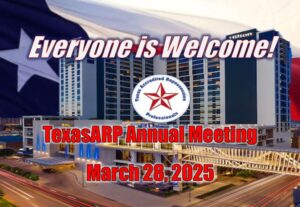
GUEST EDITORIAL
In the last 10 years lending institutions and asset recovery agencies have seen numerous escalating changes related to the services, products and resources required to compete at the marketplace. The services the agency once used to allow a profit margin, towing, keys and storage fees have been taken/given away The question intrinsic to the business of asset recovery, repossession of mortgaged property, becomes: How can an intangible concept like tracing and repossession of vehicles covered by a defaulted security agreement be turned into a commodity to be packaged, labeled, and sold? Sold often to the lowest bidder.
This process is one of the neoliberal practices that have created so much recent demand for in the emerging markets argues scholar George Rigakos. Neoliberal ideology suggests that a total control of the private market by a few large entities is more efficient because competition can reduce prices and improve quality of products and services. But this requires a much more intensive approach to measuring and monitoring recovery agencies and their tasks than ever before.
It is no longer enough just to take an assignment, locate the collateral, repossess the collateral, store the collateral and deliver or bid the collateral. The entire repossession process is changing from the mere performing the required task with an absence of problems into “deliverable” proof—daily activity reports delivered in a timely fashion to clients, monitoring recovery agents’ activities and often direct contact and supervision of the recovery agencies field agents. This shift has created new ethical and possible legal considerations both in the monitoring of repossession employee activity and at the boundaries between contractor and employee relationships.
Complicating matters further, the asset recovery industry is increasingly moving toward being dominated by a few large national corporations such as Primeritus, PAR, KAR and the new emerging Location Services. These large footprint conglomerates are constantly seeking to expand their activities into larger markets, associated products and services and to locate and acquire major lenders as clients and with the secondary goal of retaining a low-cost workforce. Sociologist Max Weber famously defined a state sovereignty as the “monopoly on the legitimate use of physical force.” But the power and authority of these large footprint companies offering a “one stop shop” are creating an atmosphere which is likely to displace the smaller recovery agencies which offer a good and personal service at a fair price.
Technology has furthered this trend and soon we may see the recovery industry advance to the point that, short of total automation with autonomous vehicles, LPR cameras, and automated route software, recovery agency employees must carefully follow an automated schedule of tasks and reports that do not necessarily produce recovery of collateral but rather produces salable data. The timing and order of their routes are now often client controlled by the requirement to check in with computer networked keystrokes at provided addresses and/or locations throughout the computer generated and dictated recovery route.
With the goal of reducing the recovery industry to a commodity, the systems and requirements put in place by the large footprint and assignment controlling entities have made the management of recovery agency field agents a higher priority than recovering the mortgaged collateral. It is amusing to see the way that the field agents have subverted the system both to recover the vehicles and to control their own efforts.
What will the end result be? We, the active members of the asset recovery industry, can but wait and see. Regarding the direction of the recovery industry, I was once told by a very knowledgeable person, “Alea Iacta Est”… The die is cast. I equate that to another wise quotation, “We cannot change the cards we are dealt, but we can control how we play the hand.
Ron L. Brown










Facebook Comments